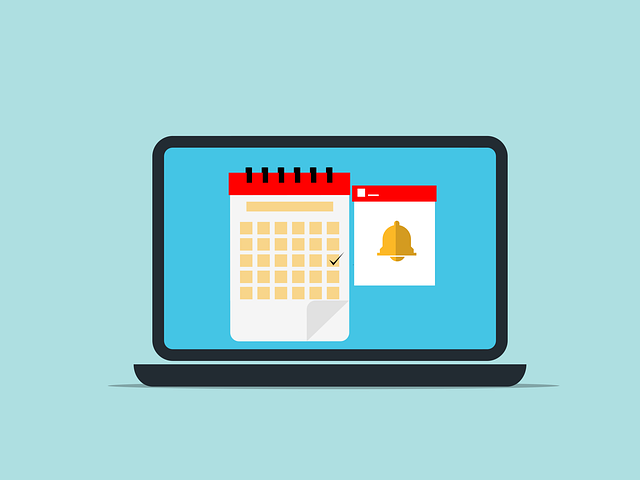Revolutionize Medical Appointments: Engage, Schedule, Reduce No-Shows

Implementing professional appointment booking services revolutionizes medical appointment setting by…….
In the rapidly evolving healthcare landscape, efficient appointment setting has emerged as a critical component in ensuring optimal patient care and satisfaction. Appointment setting, specifically tailored for medical facilities, involves the strategic planning and management of patient visits to streamline operations, reduce wait times, and enhance overall clinical efficiency. This article delves into the intricacies of this process, exploring its global impact, economic implications, technological innovations, regulatory frameworks, and the challenges it faces. By examining these aspects, we aim to provide a comprehensive understanding of how appointment setting for medical facilities is reshaping healthcare delivery worldwide.
Definition and Core Components:
Appointment setting for medical facilities refers to the process of scheduling patient visits with healthcare professionals, including physicians, specialists, and medical staff. It involves several key components:
Historical Context and Significance:
The concept of structured appointment setting has evolved over the years, driven by the increasing demand for healthcare services and the need to enhance patient experiences. Historically, medical appointments were often scheduled ad-hoc, leading to long wait times and dissatisfaction among patients. In response, healthcare institutions began implementing appointment setting systems in the late 20th century, initially focusing on hard copy schedules and telephone bookings.
With advancements in technology, digital appointment setting platforms have revolutionized the process. Today, patients can book appointments online, receive reminders, and access their medical records through user-friendly interfaces. This shift has not only improved patient convenience but also enabled healthcare providers to manage resources more effectively.
International Influence:
Appointment setting for medical facilities has a profound global impact, with countries adopting and adapting systems to meet their unique healthcare needs. The implementation of efficient appointment management varies across regions:
North America: Leading medical centers in the US and Canada have extensively adopted digital appointment setting platforms, integrating them with electronic health records (EHR) for seamless data exchange.
Europe: European countries like the UK and Germany have implemented national booking systems, ensuring patients can access primary care appointments easily. These systems often incorporate waiting list management and patient feedback mechanisms.
Asia: Rapidly growing economies in Asia are investing in technology to streamline appointment setting. For instance, India has seen the rise of telemedicine platforms, allowing remote consultations and appointment scheduling.
Emerging Markets: Countries in Latin America and Africa are exploring innovative solutions, including mobile-based appointment apps, to improve access to healthcare services.
Key Trends Shaping the Trajectory:
Market Dynamics:
The global market for healthcare appointment setting systems is experiencing steady growth, driven by the increasing demand for efficient and accessible healthcare services. This growth is further fueled by:
Investment Patterns:
Healthcare institutions invest heavily in appointment setting software and related technologies to enhance operational efficiency and patient satisfaction. Key areas of investment include:
Economic Impact:
Efficient appointment setting has significant economic implications, both for healthcare institutions and patients:
| Impact Area | Description |
|---|---|
| Revenue Growth | Improved scheduling can lead to increased patient throughput, allowing medical facilities to see more patients without expanding staff or infrastructure. |
| Reduced Operational Costs | Optimized resource allocation minimizes waste and overheads associated with underutilized resources or long wait times. |
| Enhanced Patient Satisfaction | Better appointment access and reduced wait times contribute to higher patient satisfaction, encouraging repeat visits and positive word-of-mouth referrals. |
| Improved Clinical Efficiency | Streamlined scheduling enables healthcare professionals to dedicate more time to each patient, enhancing the quality of care. |
Digital Transformation in Appointment Setting:
Technological advancements have been instrumental in transforming appointment setting for medical facilities:
Future Potential:
The future of appointment setting for medical facilities holds immense potential with emerging technologies:
Key Policies and Regulatory Frameworks:
The implementation of efficient appointment setting for medical facilities is guided by various policies and regulatory bodies worldwide:
Influence on Appointment Setting Development:
These policies and regulations play a crucial role in shaping the development and adoption of appointment setting technologies:
Main Challenges Faced:
Criticisms and Proposed Solutions:
Case Study 1: Harvard Medical School’s Digital Appointment System
Harvard Medical School implemented a comprehensive digital appointment setting platform, integrating it with their EHR system. The platform allowed patients to book appointments online, receive reminders, and access medical records securely. As a result, they achieved a significant reduction in no-show rates, improved patient satisfaction scores, and enhanced clinical workflow efficiency. The system’s ability to provide real-time data analytics enabled the medical school to optimize staffing and appointment scheduling, resulting in better resource utilization.
Case Study 2: Telemedicine Revolution in Rural India
In a remote Indian village, a local healthcare center adopted telemedicine as a primary means of appointment setting. Patients could connect with doctors via video conferencing for consultations and booking. This initiative successfully addressed the lack of access to specialized medical care in the region. By providing remote consultations, the program increased patient visits, improved diagnostic accuracy, and facilitated timely treatment without requiring patients to travel long distances.
Lessons Learned:
Emerging Trends and Growth Areas:
Strategic Considerations for Healthcare Institutions:
Appointment setting for medical facilities is a critical component of modern healthcare delivery, shaping patient experiences and clinical outcomes. The global impact of this process is evident in the widespread adoption of digital solutions, leading to more efficient, accessible, and patient-centric healthcare services. Technological advancements, regulatory support, and increasing investment continue to drive innovation, addressing challenges and improving overall appointment management.
As we look to the future, the integration of AI, telemedicine, and remote monitoring promises even greater enhancements in appointment setting, enabling medical facilities to provide more personalized, convenient, and effective care to patients worldwide. By embracing these trends and strategic considerations, healthcare institutions can stay at the forefront of providing exceptional patient experiences while optimizing operational efficiency.
Q: How does efficient appointment setting benefit patients?
A: Efficient appointment setting improves patient access to healthcare services, reduces wait times, provides convenient booking options, and offers real-time communication channels. These benefits contribute to higher patient satisfaction and adherence to treatment plans.
Q: What are some common challenges in implementing digital appointment systems?
A: Common challenges include data security concerns, interoperability issues between different healthcare systems, technological adoption barriers, high initial implementation costs, and regulatory compliance complexity.
Q: How can AI be utilized in appointment setting?
A: AI can predict patient demand, optimize staffing, offer personalized recommendations for appointments, automate administrative tasks, and provide insights for improved clinical decision-making based on historical data.
Q: What are the advantages of telemedicine for appointment setting?
A: Telemedicine allows patients in remote areas to access specialized healthcare professionals without travel, improves accessibility, reduces no-show rates, and provides a cost-effective alternative for routine consultations.
Q: How can healthcare institutions ensure data privacy and security in appointment setting systems?
A: Healthcare providers should implement robust cybersecurity measures, regular staff training, encryption protocols, multi-factor authentication, and access controls to safeguard patient data while complying with relevant regulations like HIPAA or GDPR.

Implementing professional appointment booking services revolutionizes medical appointment setting by…….

Advanced lead scheduling systems, integrating automated reminders and user-friendly booking platform…….

Streamlining medical appointment setting with automated systems enhances patient experiences by offe…….

Modern doctor appointment scheduling solutions automate processes, enhance convenience, and improve…….

Efficient lead scheduling in medical practices involves implementing advanced appointment booking sy…….

Efficient lead scheduling in medical practices is a game-changer, enhancing patient care through aut…….

In the digital era, efficient lead scheduling through automated systems is vital for medical practic…….

Healthcare appointment solutions revolutionize medical practices by streamlining scheduling, reducin…….

Modern medical appointment setting systems, including call center booking and automated reminders, r…….